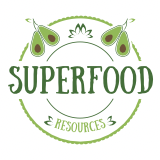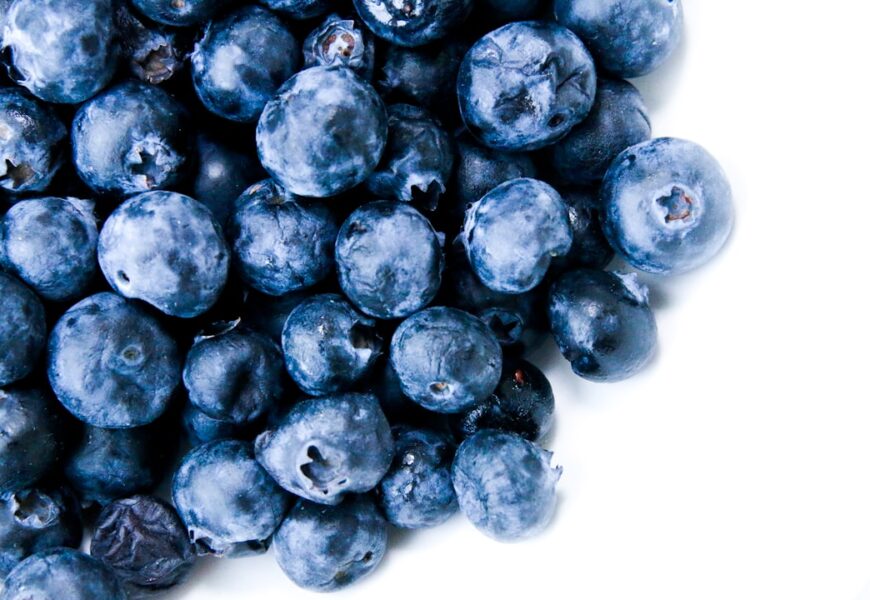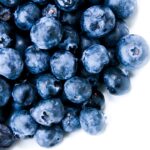Superfood Products: Are They Worth the Hype?
Introduction
Have you ever wandered down a grocery store aisle and noticed products labeled as “superfoods”? These items, ranging from chia seeds to acai berries, promise amazing health benefits, but is there any truth to the claims? Superfoods have created a buzz in the health and wellness industry, but as savvy consumers, it’s essential to dig deeper. Are these nutrient-packed foods really as beneficial as advertised, or is it all just clever marketing? Let’s explore if superfoods are truly worth the hype and what they can actually do for your health.
What are Superfoods?
 Image courtesy: Unsplash
Image courtesy: Unsplash
Definition of Superfoods
Superfoods are predominantly food items that are touted for their high density of essential nutrients, antioxidants, vitamins, and minerals. These components are believed to provide significant health benefits, ranging from improved energy levels and mental clarity to reduced risks of chronic diseases. While there is no formal scientific definition, the term superfood is often applied to foods that contain exceptional nutrient profiles in comparison to the amount of calories they contain.
Common Examples of Superfoods
The list of items commonly classified as superfoods is extensive and varies depending on cultural contexts and new scientific findings. However, typical examples include berries like acai and blueberries, leafy greens such as kale and spinach, seeds like chia and flaxseed, as well as other items like salmon, green tea, and dark chocolate. These foods are renowned not just for their supposed health benefits but also for their versatility in different culinary applications. Whether it’s through smoothies, salads, or main dishes, integrating these superfoods into daily diets has become increasingly popular.
The Hype Surrounding Superfood Products
Marketing Tactics Used to Promote Superfoods
The marketing of superfoods often involves highlighting their extraordinary nutrient content and the potential health benefits these nutrients offer. Advertisers frequently use bold claims and health-driven language to draw in consumers seeking to improve their health. Packaging is another powerful tool, with vibrant colors and buzzwords like “antioxidant-rich” and “immune-boosting” plastered prominently. Social media influencers and celebrity endorsements also play a significant role, as they help to amplify the allure and perceived credibility of superfoods.
Common Myths about Superfoods
Several myths surround superfoods, further fueled by exaggerated marketing claims. One such myth is that consuming superfoods can result in quick and drastic health improvements, such as instant weight loss or immediate enhancement in physical stamina. Another popular misconception is that these foods can replace medications or be singular solutions to complex health issues. It’s crucial to understand that while superfoods are nutritious, they are part of an overall diet and should not be expected to compensate for unhealthy lifestyle choices.
Potential Risks of Overconsumption
While superfoods are generally safe and healthy, overconsumption can lead to potential risks, particularly when one relies excessively on them at the expense of a balanced diet. For instance, consuming large quantities of foods rich in vitamin K, like kale and spinach, can interfere with blood-thinning medications. Similarly, foods high in selenium such as Brazil nuts, if eaten in excessive amounts, can lead to selenium toxicity, symptoms of which include gastrointestinal distress and neurological damage. It’s important for consumers to ensure that their intake of these superfoods stays within recommended daily allowances and to maintain a diversified diet to avoid nutritional imbalances.
Health Benefits of Superfoods
Nutritional value of superfoods
Superfoods are so named because of their high nutritional density. This means they are rich in vitamins, minerals, antioxidants, and other health-promoting substances, often more so than regular foods. For instance, kale and spinach are loaded with vitamins A, C, and K, iron, and calcium, while berries like blueberries boast impressive amounts of antioxidants and phytochemicals that support overall health. Additionally, seeds such as chia and flax are excellent sources of omega-3 fatty acids and fiber. By integrating these superfoods into your diet, you’re providing your body with essential nutrients that can boost your immune system, reduce inflammation, and even enhance your mood.
Studies supporting the health benefits
Various studies have highlighted the potential health benefits of superfoods. Research suggests that foods like blueberries and salmon can improve brain function and reduce the risk of chronic diseases such as heart disease and diabetes. For example, a study published in the Journal of Nutrition showed that blueberries could improve memory in older adults. Another significant research from Harvard University found that people who include more nuts and seeds in their diet are less likely to develop heart disease or diabetes, thanks to the high levels of unsaturated fats and nutrients. These studies not only substantiate the health claims made about superfoods but also point towards their potential in preventative health care.
Incorporating superfoods into a balanced diet
Incorporating superfoods into your diet should be about balance rather than replacement. Start by including a variety of superfoods in your meals to ensure a more expansive intake of nutrients. For instance, you can add a handful of almonds or walnuts to your morning yogurt or cereal, toss some spinach or kale into your smoothie, or choose dark chocolate over milk chocolate for an antioxidant-rich treat. Remember, the key is variety, as no single food holds all the answers to optimal health. Pairing these nutrient-dense foods with a well-rounded diet will help you meet your health objectives more effectively.
Superfoods vs. Regular Foods
A comparison of nutrient content
When comparing the nutrient content between superfoods and regular foods, the difference can be quite significant. Superfoods generally contain higher concentrations of vitamins, minerals, and antioxidants. For example, a cup of strawberries provides more vitamin C than an orange, and salmon contains omega-3 fatty acids not found in many other protein sources like chicken or beef. This elevated nutrient content makes superfoods particularly valuable for those looking to boost their overall nutrient intake efficiently.
Cost-effectiveness of superfoods
While superfoods are nutrient-rich, they can be more costly. It is important to consider whether the higher price tag can be justified by their nutritional value. Assessing cost-effectiveness involves comparing the nutrient-per-dollar ratio. Sometimes, more affordable options like broccoli, carrots, and lentils, which are not typically branded as superfoods, offer excellent nutritional value for their price. It’s essential to weigh these factors and make choices based on both health benefits and financial feasibility.
Accessibility of superfoods
Accessibility is another factor to consider when evaluating superfoods. Many superfoods, such little-known fruits or exotic seeds, can be hard to find in regular supermarkets and may require a visit to specialty stores or online purchases. This can add to their cost and may make them less accessible to a broad audience. On the other hand, many everyday fruits, vegetables, and grains that are easily available can also offer significant health benefits. Therefore, while superfoods are indeed packed with nutrients, accessibility and cost must be considered to determine their practicality for everyday use.
Making Informed Decisions
 Image courtesy: Unsplash
Image courtesy: Unsplash
When pondering the addition of superfoods to your diet, it’s wise to carefully evaluate the products you choose and understand how they fit into your nutritional needs. While the superfood label can be alluring, not all products are created equal. Here are some strategies for making informed choices.
Tips for choosing quality superfood products
When shopping for superfood products, look for transparency in labeling. Products should clearly list all ingredients, with superfoods ideally at the top of that list, indicating higher concentration. Also, check for organic certification, as this can minimize your exposure to pesticides and artificial substances. Here are a few quick tips:
– Research the brand: Opt for companies with reputable, transparent practices.
– Avoid excess sugar: Many superfoods are marketed in forms rich in added sugars. Read labels carefully to ensure you’re not undermining health benefits.
– Check reviews: Look at consumer feedback, especially any related to health outcomes.
Consulting with a healthcare professional
Before diving into the latest superfood trend, it’s a great idea to talk with a healthcare professional, especially if you have pre-existing health conditions or dietary limitations. Nutritionists or dietiticians can provide personalized advice based on your health profile, helping you to discern which superfood products can be beneficial and which might be unnecessary or even harmful.
Addressing individual dietary needs
Each individual’s dietary needs are unique. Factors such as age, activity level, health conditions, and overall dietary patterns play crucial roles in determining whether a superfood product will be beneficial. For instance, high-fiber superfoods like chia seeds are excellent for digestion, but they might be problematic for someone with certain gastrointestinal conditions. Similarly, superfoods that are high in vitamin K, like kale, can interfere with blood-thinning medications.
When considering superfoods, align their benefits with your personal health goals. Are you looking to boost heart health, improve digestion, or perhaps support immune function? Select superfoods that align well with these objectives, ensuring that they contribute positively to your typical dietary intake.
Conclusion
The allure of superfood products is undeniable, with their promises of superior health benefits and essential nutrients. However, it’s crucial to approach these claims with a balanced perspective. While superfoods do offer concentrated amounts of antioxidants, vitamins, and minerals, they are not magical cures for health issues. Integrating superfoods into a balanced diet can certainly enhance nutritional intake, but they should not be seen as a substitute for a varied and balanced diet. Making informed choices based on nutritional science rather than marketing hype will lead to better health outcomes and a more sustainable lifestyle. Remember, no single food holds the key to good health; it’s the combination of a well-rounded diet and healthy lifestyle choices that truly makes a difference.










